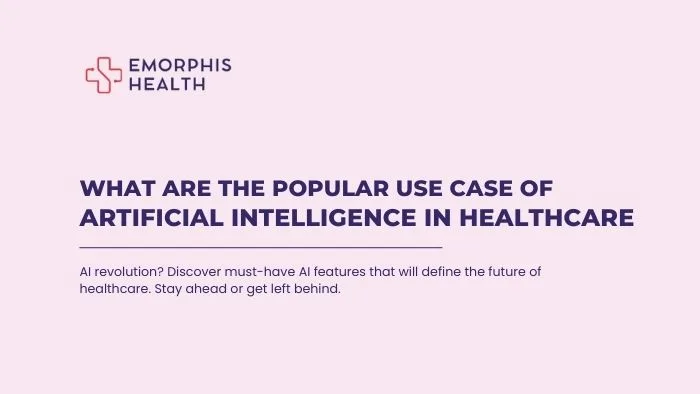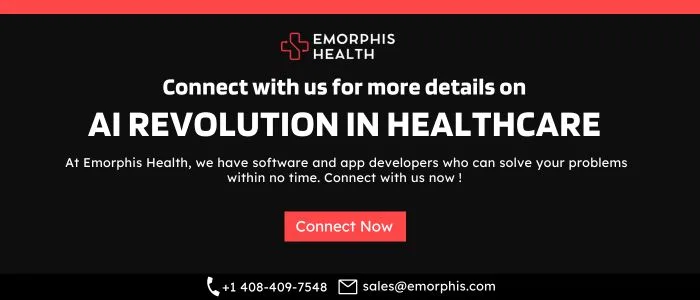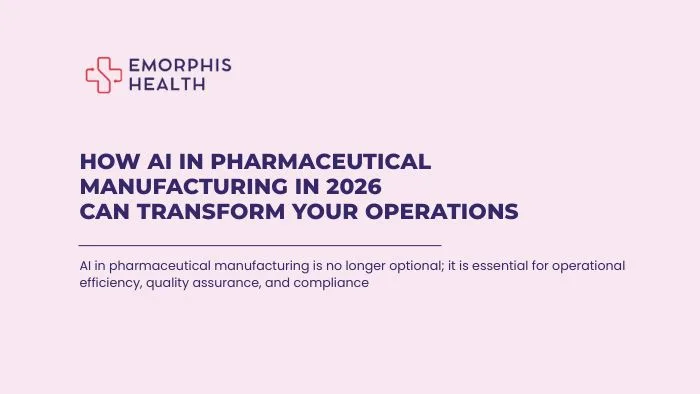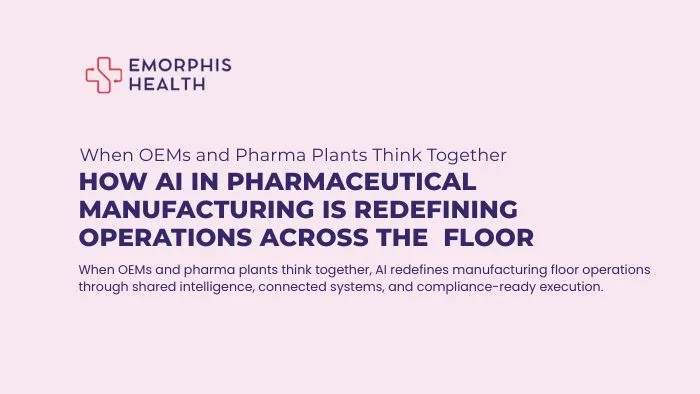Overview
See Contents
- 1 Overview
- 2 1. AI in Medical Imaging and Diagnostics
- 3 2. AI for Personalized Medicine
- 4 3. AI-Powered Virtual Assistants and Chatbots
- 5 4. AI in Predictive Analytics and Early Disease Detection
- 6 5. AI in Telemedicine, Remote Patient Monitoring and Wearable Devices
- 7 More Use Case of AI in Healthcare – Transforming Patient Care and Efficiency
- 8 Conclusion
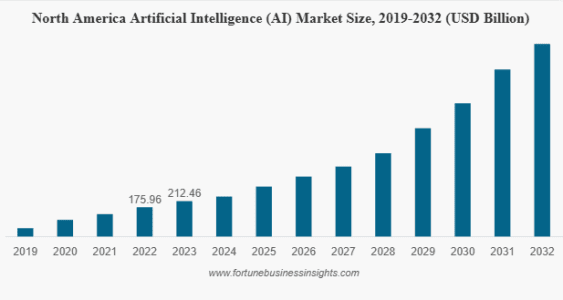
Moreover, AI-driven chatbots, virtual assistants, and automated administrative tools are reducing the burden on medical professionals, allowing them to focus more on patient care. Below are the key use cases where AI is making a significant impact in healthcare, reshaping the future of medical innovation and patient management.
1. AI in Medical Imaging and Diagnostics
AI in Medical Imaging and AI in Diagnostics are transforming the healthcare landscape by enhancing the speed, accuracy, and efficiency of disease detection. Advanced medical imaging technologies such as MRI, CT scans, and X-rays generate vast amounts of complex data. Traditionally, analyzing these images required expert radiologists, but AI-driven systems now assist in identifying abnormalities like tumors, fractures, and neurological disorders with remarkable precision.
How AI in Medical Imaging is Revolutionizing Diagnostics
AI-powered image recognition tools leverage deep learning and machine learning algorithms to process medical scans and detect even the smallest irregularities that might be overlooked by the human eye. By automating image interpretation, AI helps reduce diagnostic errors, speeds up the workflow, and supports early disease detection, ultimately improving patient outcomes.
Real-World Applications of AI in Diagnostics
-
Cancer Detection:
- Google’s AI system has demonstrated higher accuracy than radiologists in detecting breast cancer in mammograms, reducing false positives and false negatives.
- AI-driven pathology tools analyze biopsy slides to detect cancer cells, leading to quicker and more reliable diagnoses.
-
Neurological Disorder Diagnosis:
- AI in Medical Imaging assists in diagnosing conditions such as Alzheimer’s and Parkinson’s disease by identifying subtle changes in brain structure that may not be immediately evident.
-
Genetic and Rare Disease Identification:
- DeepMind’s DeepVariant utilizes AI to detect genetic mutations, improving the accuracy of genome sequencing and facilitating early intervention for genetic disorders.
-
Fracture and Bone Disease Detection:
- AI models analyze X-rays to identify fractures, osteoporosis, and joint abnormalities, ensuring timely treatment and preventing complications.
The Future of AI in Medical Imaging and AI in Diagnostics
The integration of AI in healthcare is still evolving, but its potential is immense. With continuous advancements, AI in Medical Imaging will further refine diagnostic capabilities, making healthcare more accessible and efficient. Additionally, AI in Diagnostics will expand beyond imaging, integrating with electronic health records, lab results, and wearable technology data to provide comprehensive patient assessments.
By leveraging AI in Medical Imaging and AI in Diagnostics, healthcare providers can improve accuracy, reduce workload, and ensure faster decision-making, ultimately leading to better patient care and medical breakthroughs.
2. AI for Personalized Medicine
AI for Personalized Medicine is transforming healthcare by enabling precise, patient-specific treatments. By analyzing a patient’s genetic makeup, lifestyle, and medical history, AI-driven systems can craft highly individualized treatment plans. Unlike traditional one-size-fits-all approaches, AI for Personalized Medicine minimizes trial and error, optimizing therapy selection and improving patient outcomes.
How AI for Personalized Medicine Works
Machine learning models process vast amounts of patient data, including genetic sequencing, clinical records, and even environmental factors, to predict how individuals will respond to specific treatments. By leveraging predictive analytics, AI for Personalized Medicine helps doctors select the most effective drugs and therapies for each patient, reducing adverse reactions and enhancing treatment success.
Real-World Applications of AI for Personalized Medicine
-
Cancer Treatment Optimization
- IBM Watson for Oncology analyzes medical literature and patient data to recommend highly personalized cancer treatment plans.
- AI-driven predictive models assess drug responses, improving chemotherapy outcomes and minimizing side effects.
-
Genomic Medicine and Rare Disease Treatment
- AI systems identify genetic markers linked to rare diseases, enabling early diagnosis and targeted therapies.
- AI for Personalized Medicine helps tailor gene-based treatments, making precision medicine a reality for conditions like cystic fibrosis and sickle cell anemia.
-
Pharmacogenomics and Drug Development
- AI models predict individual drug responses based on genetic data, ensuring that patients receive medications suited to their unique biology.
- AI for Personalized Medicine accelerates drug discovery by identifying potential compounds that are most likely to be effective for specific genetic profiles.
-
Chronic Disease Management
- AI-powered health monitoring systems provide continuous analysis of patient data, enabling proactive intervention for conditions like diabetes and cardiovascular diseases.
- Wearable devices integrated with AI for Personalized Medicine adjust medication dosages in real time based on patient vitals and lifestyle habits.
The Future of AI for Personalized Medicine
The integration of AI for Personalized Medicine into mainstream healthcare is paving the way for more effective, cost-efficient, and patient-centric treatments. As AI models become more advanced, they will continue refining disease prediction, drug selection, and real-time health monitoring. By leveraging AI for Personalized Medicine, healthcare providers can offer targeted, data-driven treatments that improve patient outcomes and revolutionize modern medicine.
3. AI-Powered Virtual Assistants and Chatbots
AI Chatbots in Healthcare and Virtual Assistants in Healthcare are revolutionizing patient care by automating tasks, improving engagement, and providing 24/7 support. These AI-powered tools help streamline administrative workflows, assist in preliminary diagnoses, and enhance the overall patient experience. With advancements in natural language processing (NLP) and machine learning, AI Chatbots in Healthcare and Virtual Assistants in Healthcare are becoming indispensable in modern medical environments.
How AI Chatbots in Healthcare Improve Patient Care
- AI Chatbots in Healthcare offer real-time symptom assessments, guiding patients on whether they need immediate medical attention or home remedies.
- They handle appointment scheduling, prescription refills, and billing inquiries, reducing administrative burdens on healthcare staff.
- Patients receive instant responses to their medical questions, improving accessibility and reducing the need for unnecessary clinic visits.
The Role of Virtual Assistants in Healthcare
- Virtual Assistants in Healthcare like Amazon Alexa and Google Assistant provide voice-activated health support, such as medication reminders and wellness tips.
- They integrate with electronic health records (EHR) to fetch patient data, helping doctors access crucial information without manual searches.
- In hospitals, Virtual Assistants in Healthcare assist nurses by documenting patient vitals and sending alerts for abnormal readings.
Real-World Applications of AI Chatbots in Healthcare and Virtual Assistants in Healthcare
-
Symptom Checkers & Preliminary Diagnosis
- AI Chatbots in Healthcare like Ada Health and Buoy Health analyze user-reported symptoms and provide possible diagnoses.
- These chatbots offer insights based on medical databases, directing patients to the right level of care.
-
Chronic Disease Management
- Virtual Assistants in Healthcare monitor chronic conditions like diabetes by reminding patients to log their vitals and take medications.
- AI chatbots assist in mental health support by providing cognitive behavioral therapy (CBT) exercises and connecting users with therapists when needed.
-
Telemedicine & Remote Patient Monitoring
- AI Chatbots in Healthcare facilitate telehealth sessions by gathering patient information before virtual consultations.
- Virtual Assistants in Healthcare can alert doctors if a patient’s wearable device detects irregular heart rhythms or blood pressure spikes.
-
Administrative Efficiency & Patient Engagement
- AI Chatbots in Healthcare handle appointment bookings, reducing call center workloads and improving response times.
- Virtual Assistants in Healthcare provide post-surgery care instructions and follow-up reminders, ensuring better recovery outcomes.
The Future of AI Chatbots in Healthcare and Virtual Assistants in Healthcare
With AI technology rapidly advancing, AI Chatbots in Healthcare and Virtual Assistants in Healthcare will continue to evolve, offering even more personalized and efficient patient interactions. From AI-driven mental health support to proactive disease management, these tools are paving the way for a smarter, more connected healthcare ecosystem. By integrating AI Chatbots in Healthcare and Virtual Assistants in Healthcare, medical institutions can enhance patient satisfaction, reduce workloads, and ensure timely medical assistance, ultimately improving healthcare delivery.
4. AI in Predictive Analytics and Early Disease Detection
AI in Predictive Analytics is revolutionizing the way healthcare providers anticipate and manage diseases. By leveraging vast datasets from electronic health records (EHR), wearable devices, and genetic information, AI models can detect patterns that signal potential health risks. Predictive Analytics in Healthcare empowers doctors to diagnose diseases earlier, personalize treatments, and improve patient outcomes through proactive interventions.
How AI in Predictive Analytics Enhances Healthcare
- AI in Predictive Analytics processes real-time patient data to identify warning signs of diseases before symptoms appear.
- It aids in resource allocation by forecasting patient admission rates, ensuring hospitals are well-equipped for demand fluctuations.
- By analyzing historical health records, Predictive Analytics in Healthcare helps identify individuals at risk of chronic conditions like diabetes, heart disease, and stroke.
Real-World Applications of Predictive Analytics in Healthcare
-
Early Disease Detection
- AI in Predictive Analytics enables early diagnosis of life-threatening conditions such as sepsis by analyzing subtle physiological changes in patients.
- AI-powered screening tools identify individuals at high risk of developing cancer, allowing for early intervention and improved survival rates.
-
Cardiovascular Risk Prediction
- Predictive Analytics in Healthcare assesses heart attack and stroke risks using EHR data, lifestyle factors, and genetic markers.
- AI models continuously monitor heart rhythms to detect atrial fibrillation, reducing the likelihood of undiagnosed cardiac events.
-
Infectious Disease Control
- AI in Predictive Analytics helps track and predict disease outbreaks by analyzing epidemiological data and patient symptoms.
- During pandemics, AI-driven forecasting tools assist in predicting infection surges and optimizing vaccine distribution.
-
Personalized Treatment Plans
- Predictive Analytics in Healthcare tailors treatment regimens by analyzing how different patients respond to medications, reducing adverse effects and improving efficacy.
- AI models support precision medicine by recommending targeted therapies based on genetic profiles and past treatment outcomes.
The Future of AI in Predictive Analytics and Predictive Analytics in Healthcare
As AI continues to advance, AI in Predictive Analytics will play an even greater role in preventive medicine, reducing hospitalizations and improving patient care. Predictive Analytics in Healthcare will further integrate with wearable technology and real-time health monitoring systems, allowing for continuous risk assessment and early interventions. By embracing AI in Predictive Analytics, healthcare providers can shift from reactive to proactive care, ultimately saving lives and optimizing healthcare efficiency.
5. AI in Telemedicine, Remote Patient Monitoring and Wearable Devices
AI in Telemedicine is transforming remote patient monitoring by enabling real-time health tracking, early disease detection, and personalized care. With AI-powered wearable devices and smart monitoring systems, healthcare providers can proactively manage chronic diseases, reduce hospital visits, and improve patient outcomes. The integration of AI in Telemedicine ensures that patients receive timely interventions, making healthcare more accessible and efficient.
How AI in Telemedicine Enhances Remote Monitoring
- AI in Telemedicine allows continuous health monitoring through smart devices, minimizing the need for in-person checkups.
- AI-driven analytics detect abnormalities in vital signs, helping physicians intervene before complications arise.
- Predictive models process data from wearables to forecast potential health risks, enabling early preventive measures.
Real-World Applications of AI in Telemedicine
-
Wearable Health Trackers & Smartwatches
- AI-powered smartwatches detect atrial fibrillation, irregular heart rates, and oxygen saturation levels, alerting users and healthcare providers.
- Fitness wearables equipped with AI in Telemedicine track activity levels, stress, and sleep patterns, providing actionable health insights.
-
Chronic Disease Management
- AI in Telemedicine enhances remote patient monitoring for conditions like diabetes, hypertension, and COPD.
- AI-driven glucose monitors analyze blood sugar trends, allowing for timely medication adjustments and dietary recommendations.
-
Early Disease Detection & Predictive Analytics
- Remote monitoring devices use AI in Telemedicine to detect early signs of stroke, heart attacks, and respiratory issues.
- AI algorithms analyze ECG patterns to predict cardiac events, preventing emergencies through preemptive care.
-
Virtual Consultations & AI-Assisted Diagnoses
- AI-powered virtual health assistants collect patient symptoms, streamlining telemedicine consultations.
- AI in Telemedicine assists doctors by analyzing patient data and suggesting possible diagnoses.
The Future of AI in Telemedicine
With advancements in AI, AI in Telemedicine will continue to expand, integrating with smart homes, IoT devices, and EHR systems for a seamless healthcare experience. AI-driven virtual health platforms will further enhance accessibility, ensuring that patients receive real-time, data-driven medical care from anywhere in the world. By leveraging AI in Telemedicine, healthcare providers can offer more efficient, personalized, and proactive treatment, shaping the future of digital health.
More Use Case of AI in Healthcare – Transforming Patient Care and Efficiency
The use case of AI in healthcare is revolutionizing patient care, diagnostics, and operational efficiency. One of the most advanced implementations is AI in robotic surgery, where AI-powered robotic systems assist surgeons in performing minimally invasive procedures with greater precision, reducing recovery time and complications.
Similarly, AI for administrative workflow automation is streamlining hospital management by handling appointment scheduling, medical billing, and patient record management, allowing healthcare professionals to focus more on patient care. The use case of AI in healthcare extends beyond clinical applications, improving efficiency across the entire healthcare ecosystem.
Another significant use case of AI in healthcare is in mental health, where AI-driven chatbots and virtual therapists provide immediate support to individuals suffering from anxiety, depression, and PTSD. These AI-powered systems analyze speech patterns and behavioral data to offer early intervention and personalized therapy recommendations.
Moreover, AI in healthcare fraud detection is tackling fraudulent claims and billing discrepancies, saving millions for insurance companies and healthcare institutions. By leveraging AI algorithms, providers can identify irregular patterns, prevent financial losses, and ensure compliance with regulatory standards. The use case of AI in healthcare is not only enhancing patient outcomes but also optimizing operational processes, ensuring a more efficient and secure healthcare system.
How AI Enhances Software?
Let us now check the following column of AI use cases to show how AI enhances software in each healthcare department. This will give you a complete view of not only the tools used, but also where AI adds real value through automation, prediction, optimization, and personalization.
| Department | Software Solutions | AI Use Cases |
| Emergency | EHRs, RTLS, ED tracking | Predict patient acuity, triage optimization, real-time bed and staff allocation |
| Internal Medicine | EHRs, CDSS | Early diagnosis via predictive analytics, clinical decision support, patient risk scoring |
| Surgery | OR scheduling, AIMS | AI-assisted surgical planning, robotic surgery, outcome prediction |
| Pediatrics | Pediatric EHRs, Immunization tools | Growth/development prediction, anomaly detection in vitals |
| OB/GYN | OB charting, fetal monitoring | Fetal distress prediction, preterm birth risk scoring |
| Orthopedics | Surgical planning tools | AI-assisted imaging analysis, implant fitting recommendations |
| Cardiology | ECG tools, Cardiac PACS | AI ECG interpretation, arrhythmia detection, heart failure prediction |
| Oncology | Oncology IS, chemo order sets | AI for tumor detection in imaging, personalized treatment planning |
| Neurology | EEG tools, NeuroPACS | Stroke prediction, seizure detection, cognitive decline monitoring |
| Psychiatry | Behavioral EHRs, Telepsych platforms | NLP for sentiment/mood analysis, suicide risk scoring |
| Radiology | PACS, RIS | Automated image interpretation (e.g., fractures, nodules), radiology report generation |
| Anesthesiology | AIMS | AI for dosage adjustment, real-time monitoring alerts |
| Dermatology | Derm EHR, Telederm | Skin lesion classification, melanoma detection via image AI |
| Gastroenterology | Endoscopy tools | Polyp detection during endoscopy using real-time video AI |
| Urology | Urology EHRs | Bladder cancer detection in imaging, flow pattern analysis |
| Pathology | LIS, Digital viewers | AI slide analysis, tumor grading, cell count automation |
| Clinical Labs | LIS, Middleware | Auto-flagging abnormal results, lab workflow optimization |
| Pharmacy | Pharmacy IS, Inventory mgmt | Drug interaction alerts, adherence prediction, stock demand forecasting |
| Nursing | EHR, eMAR | Shift optimization, patient deterioration alerts |
| Inpatient Units | Bed management, Smart rooms | Predict discharges, real-time staffing suggestions |
| Outpatient Clinics | Scheduling tools, Portals | No-show prediction, personalized follow-up suggestions |
| Admissions | Registration, ID scanning | Insurance verification via OCR, patient identity fraud detection |
| HIM | EHR, Transcription tools | NLP for medical documentation, auto-coding for billing |
| Billing/RCM | RCM platforms | Claim denial prediction, revenue leakage detection |
| HR | HRIS, Credentialing | Workforce planning, burnout risk prediction |
| Finance | ERP, Budgeting tools | Financial forecasting, fraud detection |
| Legal & Compliance | Compliance software | AI-powered audit trail analysis, HIPAA risk scanning |
| IT | Network tools, Cybersecurity | Threat detection, AI-driven patch recommendations |
| Facilities | CMMS | Predictive maintenance, energy use optimization |
| Supply Chain | Inventory mgmt | Demand forecasting, auto-reordering optimization |
| Security | Surveillance, Access control | Facial recognition, threat pattern recognition |
| Marketing/PR | CRM, CMS | Patient sentiment analysis, campaign effectiveness prediction |
| Quality & Risk | Incident reporting, Dashboards | Root cause analysis, safety event prediction |
| Patient Experience | Survey tools | AI for sentiment analysis, NPS score prediction |
| Telemedicine | Amwell, RPM tools | AI triage bots, symptom checker, video stream diagnostics |
| Clinical Research | CTMS, EDC | Patient eligibility matching, protocol optimization |
| Health Education | LMS, Portals | Personalized learning paths, engagement analytics |
| Palliative Care | Hospice EHRs | Predictive analytics for end-of-life care planning |
| Rehabilitation | Rehab EMRs | Motion analysis for therapy progress, AI-driven care plans |
As technology advances, the use case of AI in healthcare will continue to evolve, integrating with telemedicine, predictive analytics, and drug discovery. AI-driven solutions will enhance personalized medicine, improve diagnostic accuracy, and enable real-time patient monitoring. The use case of AI in healthcare is proving to be a game-changer, reducing inefficiencies, lowering costs, and ultimately improving the quality of care. With continued innovation, AI will redefine the future of healthcare, making it more accessible, effective, and patient-centric.
Conclusion
AI is transforming healthcare by improving diagnostics, treatment, and patient management. From enhancing medical imaging accuracy to enabling personalized medicine, AI is paving the way for a smarter and more efficient healthcare system. As AI continues to evolve, its potential to revolutionize healthcare will only expand, making medical services more precise, accessible, and cost-effective.

